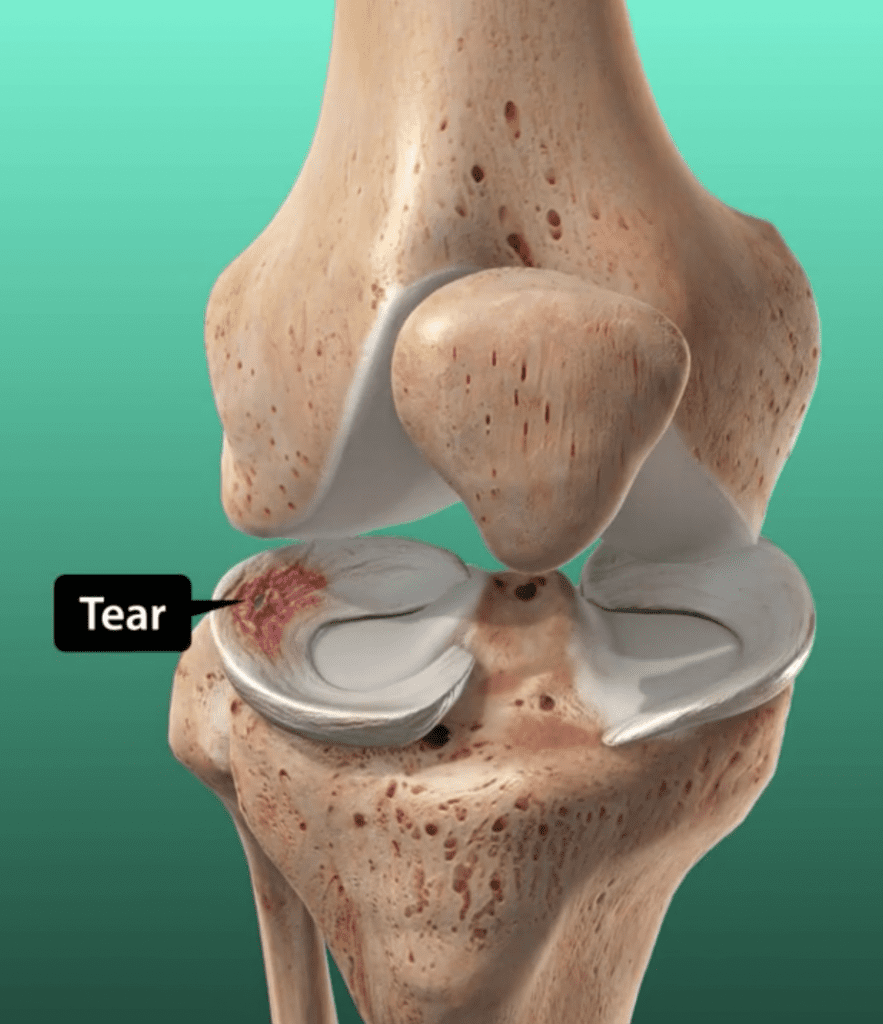Meniscus Tear
What is a Meniscus Tear?
A meniscus tear is a common knee injury that often occurs during activities involving twisting or direct impact on the knee joint. The meniscus is a C-shaped piece of cartilage that acts as a shock absorber between the thigh bone (femur) and shinbone (tibia). It plays a crucial role in providing stability, reducing friction, and distributing weight across the knee joint.
Causes
Meniscus tears can happen due to a variety of causes. These may include:
- Trauma: Sudden forceful movements, such as pivoting or twisting of the knee joint, can cause the meniscus to tear. This type of tear is often seen in athletes who participate in sports like soccer, basketball, and tennis.
- Degeneration: With age, the meniscus can gradually wear down and become less flexible. Even normal activities like walking or standing up can lead to a tear in a degenerated meniscus.
- Wear and Tear: Over time, repetitive stress on the knee joint, such as from repetitive kneeling or squatting, can weaken the meniscus, making it more susceptible to tearing.
Symptoms
The signs and symptoms of a meniscus tear can vary depending on the severity and location of the tear. Common symptoms include:
- Knee Pain: Pain is often felt along the joint line of the knee and may worsen during activities that involve bending or twisting.
- Swelling: Fluid buildup in the knee joint due to inflammation can result in noticeable swelling.
- Limited Range of Motion: A meniscus tear can make it difficult to fully extend or flex the knee joint.
- Locking or Catching Sensation: A torn piece of meniscus may cause the knee to lock or catch during movement, preventing smooth motion.

Call Our Office
(912) 999-6885
Office Location
9100 White Bluff Road, Suite 102
Savannah, GA 31406
Book An Appointment
Click Here To Book An Appointment
As a Carpal Tunnel Specialist, our orthodontic surgeons are highly trained in the diagnosis and treatment of various musculoskeletal conditions, including meniscus tears. With their expertise, they can provide personalized care and guide patients through every step of their treatment journey.
Treatments
The treatment options for a meniscus tear depend on various factors, including the location, size, and severity of the tear, as well as the patient’s age, activity level, and overall health. The following treatments are commonly used:
Potential at-home remedies:
Rest, ice, compression, and elevation (RICE) can help reduce pain and swelling.
Physical therapy exercises may be recommended to strengthen the muscles around the knee, improving stability and reducing stress on the meniscus.
Meniscus Tear Specialist’s interventions:
Surgical Intervention
In cases where conservative measures do not provide relief, surgery may be necessary. Arthroscopic surgery is a minimally invasive procedure that allows orthopedic surgeons to repair or remove the torn meniscus.
Post-Surgery Rehabilitation
Following surgery, a comprehensive rehabilitation program is vital for optimal recovery. It typically involves physical therapy exercises to restore strength, range of motion, and stability to the knee joint.
